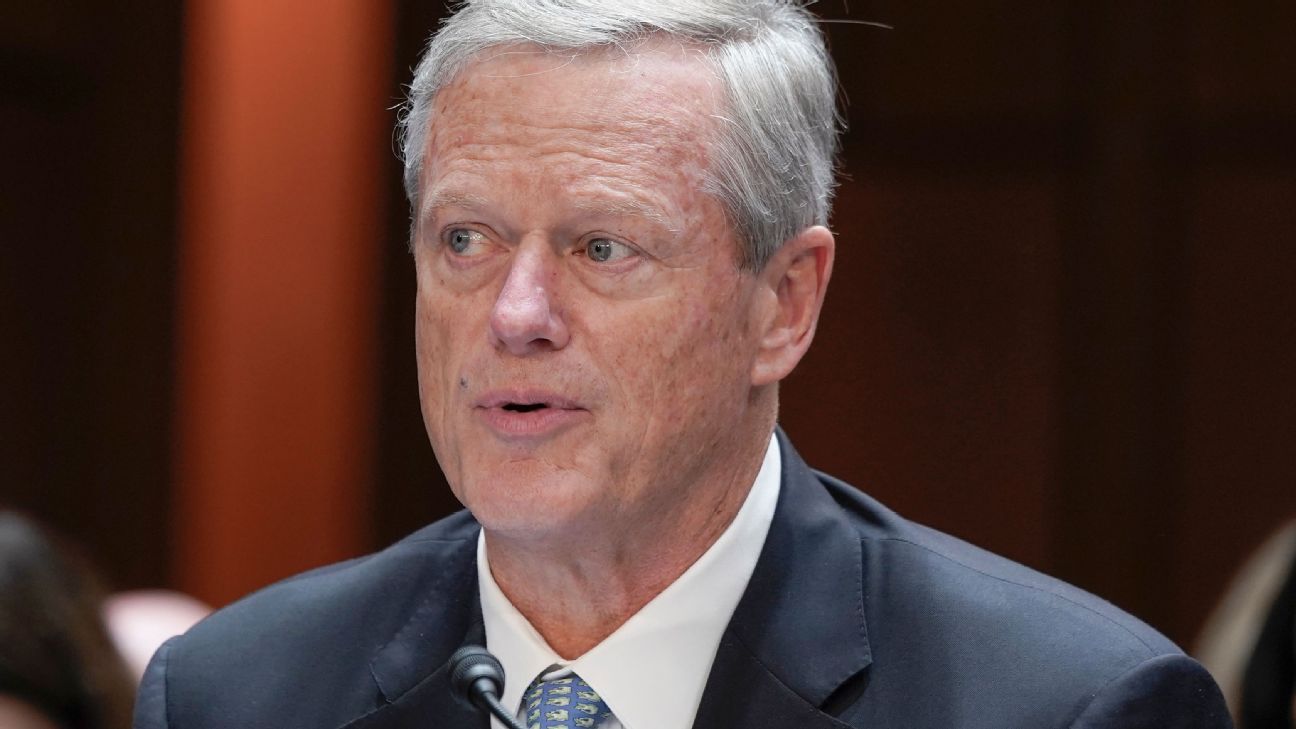GLENDALE, Ariz. — NCAA president Charlie Baker said he’s focused on creating a “consumer protection system” for collegiate athletes and their families so they can have a better understanding of name, image and likeness deals that are legitimate — and those that are fraudulent.
Baker, who spoke to reporters prior to the start of the national championship game Monday, said a multitude of athletes are basing NIL decisions on limited information about the legitimacy of the companies and sponsors courting them.
“One piece, which we’ve been working on for a while, is what we call a consumer protection package,” Baker said. “For the first time, some semblance of what the market looks like so that student-athletes and their families can have some idea about whether or not what somebody’s promising them or telling them is actually legit. The second piece is to create almost like a Yelp or a Trip Advisor that will give student-athletes the ability to talk about third parties that do right by them and third parties that don’t. I think it’s unfortunate that for the most part that whole space is kind of anonymous and I think that puts, again, kids and families in a tough spot.”
Baker also said he’s concerned about the impact of prop-betting on collegiate sports. He said he’s spoken directly with athletes who are concerned about the growing impact of sports betting in the collegiate space.
“I think the prop-betting piece is enormously problematic for student-athletes and I’ve had a lot of them say that to me,” he said.
He also praised the growth of women’s basketball following another record-breaking moment when more than 18.7 million people watched South Carolina’s victory over Iowa in the national title game Sunday, and he called for federal changes to address some of the current challenges with name, image and likeness in college sports.
Last week, The Athletic reported that a group of collegiate and pro sports executives have proposed the creation of a European soccer-style system, as collegiate sports continues to navigate a landscape that’s rapidly changing.
The “super league” would separate the top 70 schools in college sports and eliminate conferences as they’re currently arranged. The system would also assemble divisions and allow a second tier of 50 teams to compete to move into the “upper division,” comparable to the relegation model in European professional soccer.
Baker said the schools should have the authority to make the decision on that concept.
“That’s a decision that has got to be made by the schools,” he said. “And I think, for the schools in particular, it’s probably a decision that should be made by them.”
